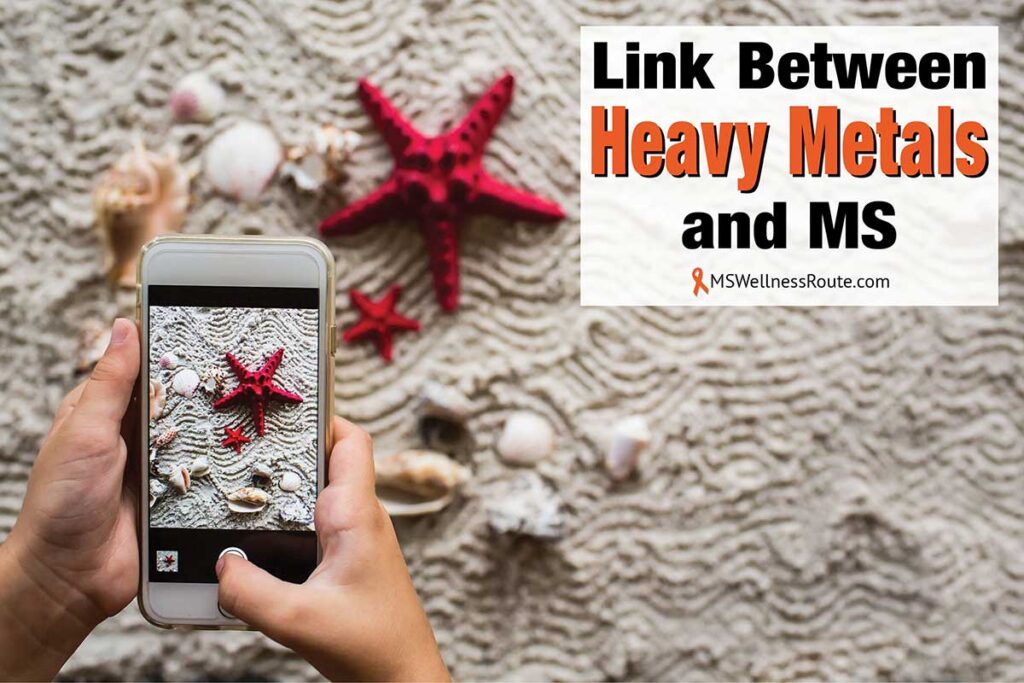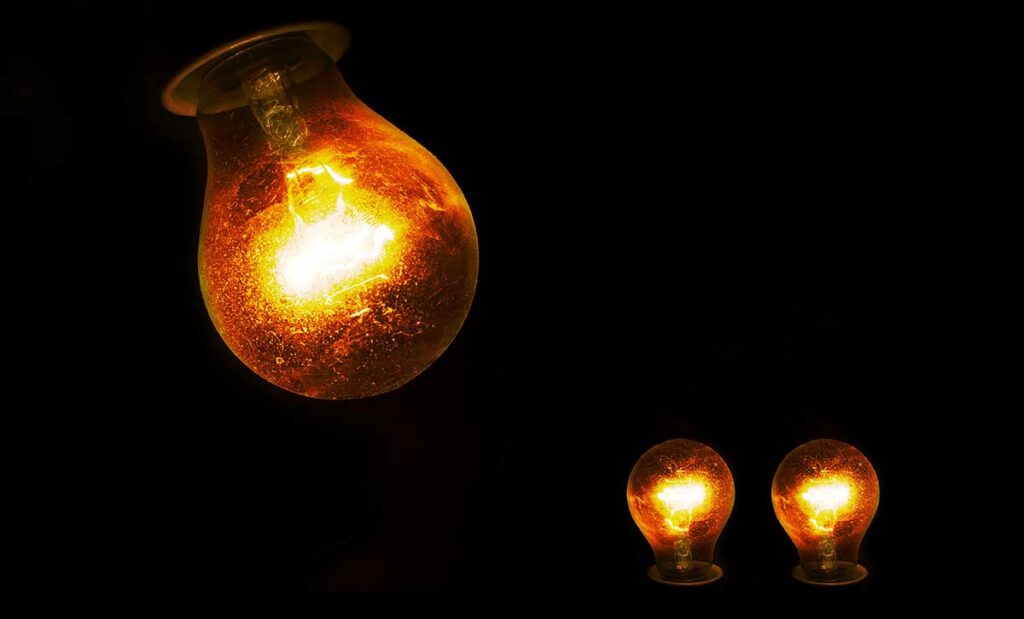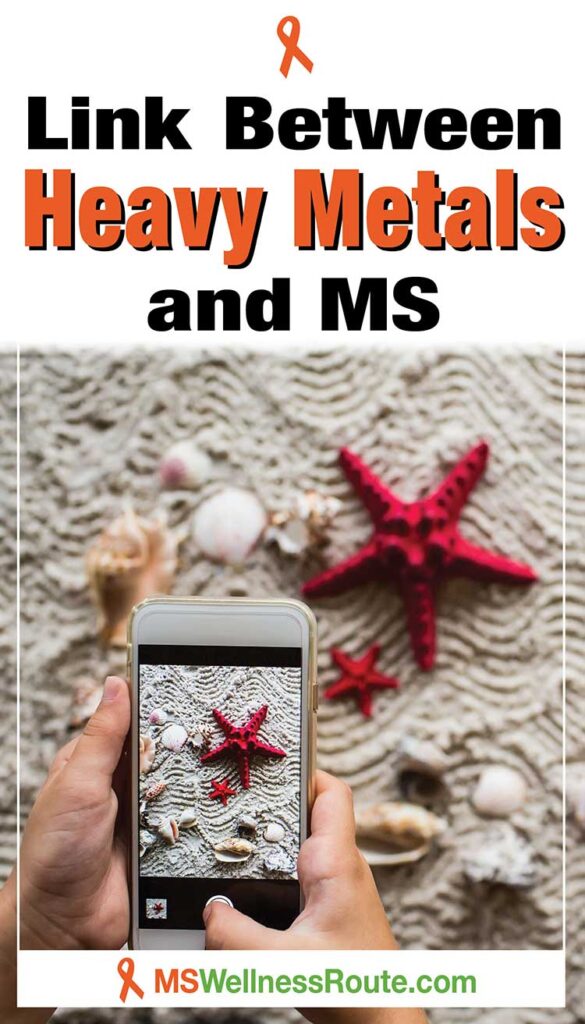Last Updated on November 13, 2023 by Cathy

Heavy metals are found in nature, especially in the soil. But our world has become polluted mainly by industrial pollutants which affect the brain and nervous system. Although studies say there is no link between multiple sclerosis (MS) and heavy metals. However, other studies say heavy metal toxicity is responsible for many neurodegenerative diseases including Alzheimer’s, Parkinson’s disease, and MS.
After many decades, researchers finally discovered the main cause of MS. They suspected Epstein-Barr virus (EBV) since the 1970s but they finally proved it. This was thanks to a 20-year study on 10 million military personnel. During their enlistment, 955 people ended up with MS.
They then compared samples from 801 of those to more than 1,500 who did not develop MS. Of the 801 people who developed MS only one did not have EBV. That is more than 99% of people with MS had EBV.
After contracting EBV it took 5-10 years until their first MS symptom appeared. Unfortunately, EBV is sneaky and most people have a mild case of EBV. If you first get EBV as a child it will show up with mild symptoms such as a cold.
To Learn More About The Study Read:
However, if you get EBV as a teen or an adult symptoms can appear more serious. Mononucleosis, or mono, is caused by EBV and it is very contagious. Mono can take weeks to recover and sometimes it can last for months.
About 95% of adults around the world have EBV but only a small percentage have MS. This proves EBV is not the only factor to trigger the onset of MS. There are many environmental factors that could play a role.
Possible factors leading to MS include:
- Bacteria
- Heavy metals
- Mold
- Poor diet
- Smoking
- Toxic chemicals
- Viruses, EBV was the only virus found in all MS patients studied (minus the one)
- Vitamin D deficiency
- Yeast
Heavy Metals

Exposure to heavy metals is one potential environmental factor to MS. Some studies suggest it’s a possible contributor to the development of MS. The National MS Society says heavy metals are an “unproven theory.”
However, heavy metals such as lead, mercury, and cadmium are toxic to the nervous system. They can cause damage to the myelin sheath that surrounds nerve fibers. This damage can lead to inflammation and degeneration of nerve fibers. Both of these are features of MS.
Heavy metals are toxic to nerve cells. Exposure to high levels of these metals can cause damage to the nervous system. Why heavy metals cause the degeneration of nerve fibers is not completely understood.
Heavy Metals and MS
Heavy metals may not cause MS but they are a cofactor. Exposure to heavy metals can cause neurological symptoms. And it can pass through the blood-brain barrier. Heavy metals can also accumulate in the body over time. This can cause damage to the nervous system, which can result in a range of neurological symptoms.
Some of the neurological symptoms associated with heavy metal toxicity include:
- Cognitive impairment. Heavy metal toxicity can cause problems with memory, concentration, and other cognitive functions.
- Headaches. Exposure to heavy metals can cause headaches and migraines.
- Numbness and tingling. Heavy metal toxicity can cause numbness and tingling in the extremities.
- Tremors. Tremors are a common symptom of heavy metal toxicity. Especially in the case of mercury exposure.
- Mood changes. Heavy metal toxicity can cause mood swings, anxiety, and depression.
- Seizures. In severe cases of heavy metal toxicity, seizures may occur.
History of Mercury

People used mercury for thousands of years including for medicinal purposes. People in ancient China used mercury as a surgical drug. Today mercury is still used in dentistry, the pharmaceutical industry, and crop protection.
Mercury is highly toxic and comes from many sources including food. Unfortunately, some dentists still use mercury fillings on patients today.
Products that currently or in the past used mercury include:
- Arc lamps
- Batteries
- Barometers (used to measure air pressure)
- Blood pressure meters
- Caustic soda (found in candles and cleaning products)
- Cosmetics
- Dental amalgam
- Dyes in clothing (used in the 1800s)
- Electronic switches
- Felt hats
- Fluorescent lights
- Fungicides
- Glass thermometers
- Incandescent lamps
- Jewelry
- LCD screens, smartphones, laptops, monitors, flat-panel televisions, etc.
- Medication for syphilis
- Mirrors
- Paint
- Paper
- Pesticides
- Spermicide in chemical contraceptives and antiseptics
- Vaccines such as the flu vaccine which has thimerosal, a mercury-based preservative
Mercury can also pass through generations. According to a study at Washington State University (WSU): “Toxic effects of mercury persists for generations.” In the earlier 1900s hat makers used mercury in the felt. Employees began having severe neurological symptoms. This is where the term “mad hatters disease” came about.
It wasn’t until the 1970s that researchers realized how toxic mercury was. Some products have been phased out such as mercury thermometers and interior latex paint. Unfortunately, there are many products with mercury still being used today.
When I was in grade school a teacher had each student hold mercury in their hand. I thought it was interesting how it moved as I tilted my hand. – Did it hurt me? I didn’t feel any difference, but I also ended up with MS. (I’m not blaming that incident on me having MS.)
“Exposure to mercury – even small amounts – may cause serious health problems.” – World Health Organization (WHO)
According to WHO, mercury is toxic to the central and peripheral nervous systems. Inhaling mercury vapors produce harmful effects on the nervous, digestive, and immune systems. It’s also harmful to the lungs and kidneys and could be fatal.
Mercury exposure comes from many different sources. It can also pass down through generations. If your great-grandparent wore or used mercury as medicine, it passes down to you.
Oxidative Stress

One possible pathway to MS is oxidation stress. Oxidative stress happens when there are not enough antioxidants in the body. When reactive oxygen species (ROS) overwhelm the body it can lead to inflammation and disease. Heavy metals can increase the production of ROS in nerve cells.
This can then cause damage to cellular components throughout the body. Oxidative stress leads to the destruction of brain cells and tissues including myelin.
Damage to the myelin sheath can lead to:
- Degeneration of nerve fibers
- Formation of lesions
- Inflammation
These are all hallmarks of MS.
To get rid of ROS eat a clean diet that is high in:
- Antioxidants. Berries, especially wild blueberries are high in antioxidants. Also, artichokes, broccoli, carrots, grapes, spinach, and tomatoes.
- Beta Carotene. Beta carotene improves white blood cells to fight ROS. Foods high in beta-carotene include carrots, collards, and squash.
- Vitamin C (ascorbic acid). Vitamin C protects cells against oxidative damage caused by ROS. Foods high in vitamin C include bell peppers, citrus fruits, and cruciferous vegetables.
- Vitamin E. Vitamin E protects cell membranes from free-radical attacks caused by ROS. Foods high in vitamin E include almonds, avocados, red peppers, and Swiss chard.
Vitamins C and E are important for restoring the central nervous system. Eat lots of foods high in these vitamins and/or take supplements such as Micro-C and Ultimate-E.
NOTE: high doses of vitamin C can cause diarrhea. Always start with a lower dose and work your way up. In the book Healing Multiple Sclerosis, Ann Boroch recommends taking 3 to 6 grams daily.
Talk to your doctor before starting any new supplements, supplements can interfere with certain medications.
A Healthy Immune System

Finally, heavy metals disrupt the immune system. Our immune system fights hard to protect our body and brain. As our world becomes more toxic our immune system works harder.
The immune system plays a major role in the development of MS. Doctors believe an autoimmune disease is where the immune system attacks your body. This is not true, our immune system is attacking pathogens inside our bodies. To get these pathogens under control you need to do everything you can to help your immune system.
Things you can do to help your immune system:
- Eat a clean diet of mostly fruits and vegetables
- Avoid farmed fish, it’s high in toxins including heavy metals
- Drink plenty of filtered water
- Eat organic as much as possible to avoid pesticides
- Avoid caffeine, it stimulates the immune system
- Get good quality sleep
- Exercise
- Stop smoking
- Use clean body care and household cleaning products
- Learn to manage your stress
- After getting an MRI with contrast drink lots of water to flush out the heavy metal Gadolinium
Detoxing From Heavy Metals

Detoxing from heavy metals can be a complex and challenging process. Here are four strategies that help detoxify from heavy metals:
- Diet and lifestyle changes. Eating a healthy diet that is rich in antioxidants. Fruits and vegetables help support the body’s natural detoxification processes. Avoid exposure to heavy metals in your food, such as aluminum pans or pesticides.
- Nutritional supplements. Vitamin C and vitamin E, selenium, and zinc help the body’s natural detoxification processes. They also protect against the harmful effects of heavy metals.
- Sauna therapy. Sweating helps the body eliminate heavy metals through the skin.
- Mind-body therapies. Practices such as meditation, yoga, and deep breathing help reduce stress. They also promote relaxation, and both support the body’s natural detoxification processes.
Herbs That Remove Heavy Metals

There are several herbs that have chelating properties. Which means they bind to heavy metals and help remove them from the body.
Here are some herbs that are commonly used for heavy metal detoxification:
- Cilantro. Also known as coriander, is a culinary herb that helps remove heavy metals from the body.
- Dandelion. This herb is often used to support liver function. It also helps promote the elimination of toxins from the body.
- Garlic. This pungent herb has antioxidant and chelating properties. It also helps support the body’s natural detoxification processes.
- Milk thistle. This herb is often used to support liver function. It also has chelating properties.
- Turmeric. This spice has antioxidant and anti-inflammatory properties. It also helps support the body’s natural detoxification processes.
Detoxing from heavy metals can be a slow and gradual process. It may take several months or even years to completely eliminate heavy metals from the body. Plus, the central nervous system is one of the slowest systems to heal.
Don’t get discouraged, starting today is better than starting next year. Eat lots of food that heals the brain and central nervous system. This will help speed up the healing process.
Include these foods into your diet every day:
- Fruits
- Herbs
- Leafy greens
- Vegetables
Heavy metal exposure is one of many potential environmental factors leading to MS. Other factors include bacteria, mold, smoking, viruses, and vitamin D deficiency, among others.
Heavy Metals and MS

It’s impossible to avoid all heavy metals. They’re found naturally and from industrial sources. They are in the air we breathe, the food we eat, and the water we drink. Even organic and non-GMO crops can contain heavy metals.
Some foods have more heavy metals such as larger prey fish like king mackerel and tuna. Does this mean you need to avoid these? For most no, but for people with MS, you may want to avoid them until you have healed.
The central nervous system is one of the slowest systems in our body to heal. If you’ve been living with MS for a while or have severe symptoms it’s best to do everything you can to speed up the process.

You may also enjoy reading:
Free Wellness Library!
Subscribe for free and I’ll send you the password to my secret library filled with many printables for your wellness journey.
Want to remember this health tip? Pin it to your Pinterest board!

Photo by Karolina Grabowska, Lukas, Photo by MART PRODUCTION from Pexels, images by Yuliya Harbachova,Lubov Lisitsa, Olexy @Ohurtsov, and Tom from Pixabay.
Resources:
https://www.ncbi.nlm.nih.gov/pmc/articles/PMC8678057/
https://www.ncbi.nlm.nih.gov/pmc/articles/PMC7996329/#:~:text=Heavy
https://www.ncbi.nlm.nih.gov/pmc/articles/PMC8924441/
https://link.springer.com/chapter/10.1007/978-3-030-66376-6_4
https://pubmed.ncbi.nlm.nih.gov/26626971/
Link Between Heavy Metals and MS





